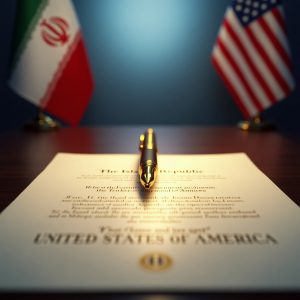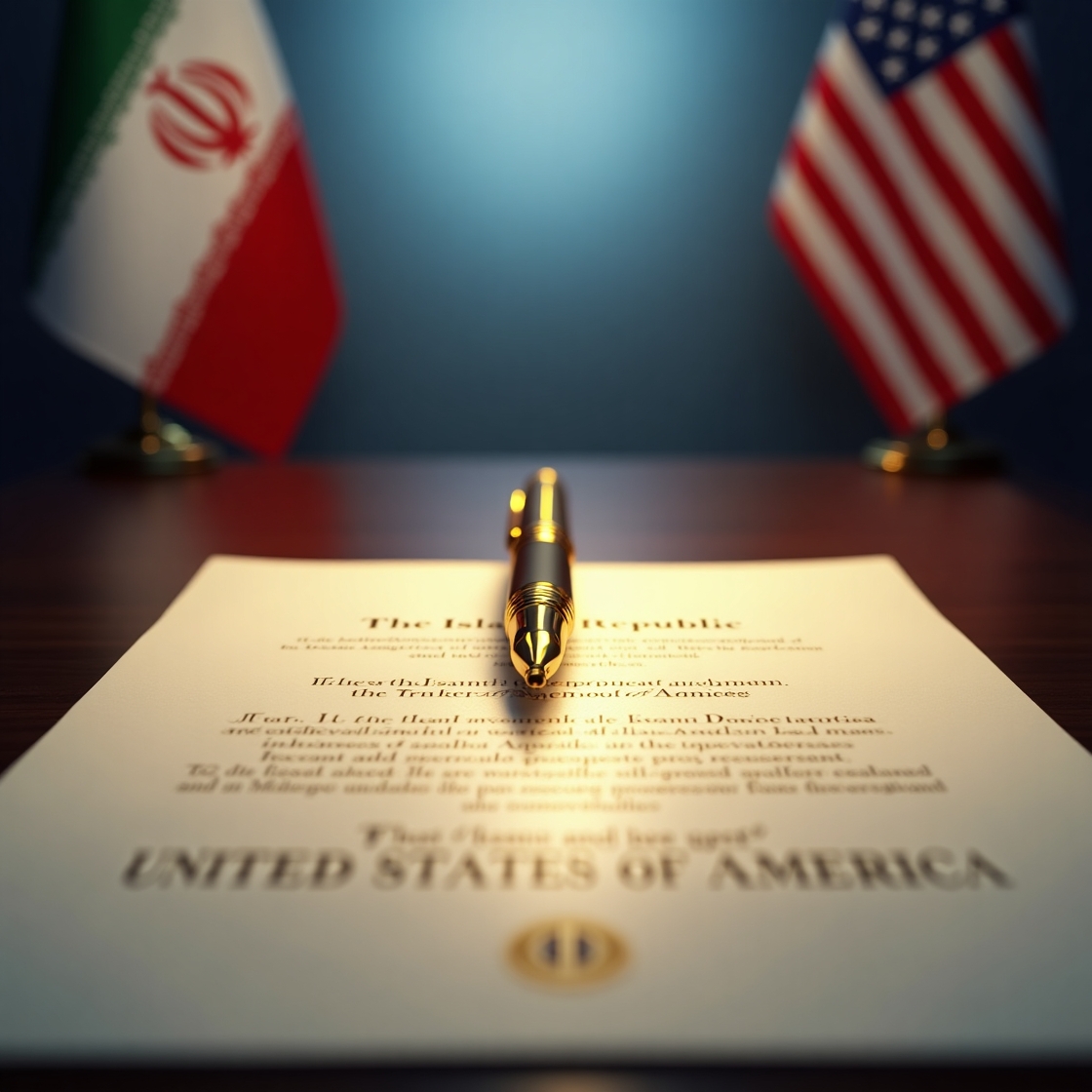Iran’s 5 conditions for an agreement with the US

Analysis of the Iran-US Agreement and Its Consequences
1. Iran’s Situation After the Agreement
-
Economic: If sanctions are lifted or reduced, Iran will regain access to frozen assets and increase oil exports. This could lead to economic growth, lower inflation, and improved living standards.
-
Political: The agreement may ease internal tensions between reformist and conservative factions, but hardline groups’ dissatisfaction could continue to pose political challenges.
-
Social: Improved economic conditions may reduce public discontent, but failure to deliver on promises could intensify protests.
2. Regional Situation After the Agreement
-
Reduced Tensions: Indirect conflicts between Iran and the US in Yemen, Syria, and Iraq may decrease.
-
Reactions from US Allies: Arab countries like Saudi Arabia and Israel may oppose the deal and strengthen security cooperation with the US.
-
Shift in Power Dynamics: If Iran is freed from economic pressure, its regional influence could grow, potentially escalating rivalry with regional opponents.
3. Israel’s Actions After the Agreement
-
Increased Diplomatic Pressure: Israel will likely lobby the US Congress to weaken or block the agreement.
-
Security and Sabotage Operations: It may escalate attacks on Iran’s nuclear or military facilities, similar to past operations against nuclear scientists.
-
Strengthening an Anti-Iran Alliance: Israel will likely expand security ties with Arab states like Saudi Arabia and the UAE to form a united front against Iran.
Conclusion:
An Iran-US agreement could create both major opportunities and challenges for Iran, the region, and players like Israel. While Iran hopes for economic relief, regional reactions and Israel’s actions could threaten the deal’s stability.
(Simplified and concise English translation)
Is a U.S.-Iran Agreement Good or Bad? And Will the U.S. Agree to It?
A potential agreement between Iran and the United States could present both significant opportunities and major challenges for both parties and the region. The answer to whether such an agreement would be beneficial depends on political, security, and economic perspectives. Additionally, the likelihood of reaching a deal hinges on domestic conditions in both the U.S. and Iran, as well as regional dynamics.
Iran’s 5 conditions for an agreement with the US
1. Would an Agreement Be Beneficial?
From Iran’s Perspective:
✅ Advantages:
-
Reduction or removal of sanctions and release of frozen assets
-
Economic improvement, increased oil exports, and attraction of foreign investment
-
Reduced international pressure and enhanced diplomatic legitimacy
❌ Disadvantages:
-
Risk of domestic opposition from hardline conservatives
-
Potential decline in motivation for technological self-sufficiency
-
Concerns about Western policy reversals (e.g., Trump’s withdrawal from JCPOA)
From the U.S. Perspective:
✅ Advantages:
-
Curbing Iran’s nuclear program expansion
-
Reducing Middle East tensions, allowing focus on competition with China and Russia
-
Potential drop in global oil prices, benefiting the U.S. economy
❌ Disadvantages:
-
Strong opposition from Israel and some Arab allies (e.g., Saudi Arabia)
-
Criticism from Republicans and risk of deal revocation under a future administration
-
Concerns about increased Iranian regional influence post-sanctions relief
2. Will the U.S. Agree to a Deal?
Iran vs. America
The probability of an agreement depends on several factors:
🔹 Biden Administration:
-
Willing to negotiate, but constrained by domestic pressures (Congress, Israeli lobby)
-
May agree if strong guarantees on Iran’s nuclear program are secured
🔹 U.S. Congress & Elections:
-
Republicans oppose any deal; a GOP victory in 2024 could lead to its cancellation
-
Even Democrats face pressure from Israel and Saudi Arabia
🔹 Regional Factors & Israel:
-
Israel strongly opposes and may undermine the deal through security operations or lobbying
-
Saudi Arabia and UAE fear growing Iranian power and will pressure the U.S.
🔹 Iran’s Domestic Situation:
-
If Iran pursues high-level enrichment, the U.S. has less incentive to deal
-
Greater flexibility from Iran on regional issues (e.g., support for proxy groups) could increase deal prospects
Conclusion: A Deal Would Be Good – But It’s Tough!
Iran vs. America
-
For Iran: Could rescue the economy but carries political risks
-
For the U.S.: Would reduce tensions but faces fierce domestic/regional opposition
-
Current Deal Probability: Low, unless:
-
Iran shows flexibility on nuclear/regional issues
-
The U.S. manages internal and Israeli pressures
-
Prediction: If serious talks resume, a limited agreement (less comprehensive than JCPOA) might emerge, but a major deal currently seems unlikely.
Iran’s 5 conditions for an agreement with the US
Read more news
Google information source


